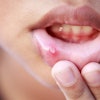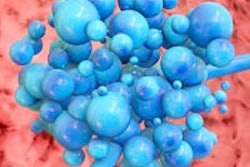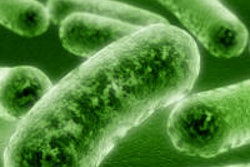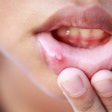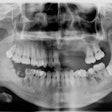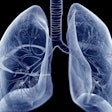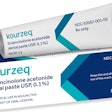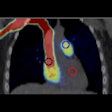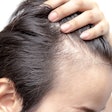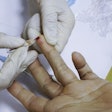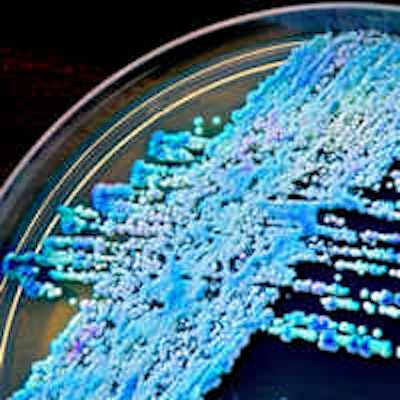
An unusual kind of immune cell in the tongue appears to play a pivotal role preventing oral thrush, according to a new study in the Journal of Experimental Medicine (September 8, 2014). These findings may suggest why some patients are more susceptible to this oral yeast infection and could lead to the development of treatments in these highly vulnerable patients, the study authors wrote.
Oral thrush is a treatable infection caused by an overgrowth of the fungus Candida albicans, which leads to painful white lesions in the mouth. It is a common complication for people with HIV, transplant recipients who take drugs to suppress the immune system, chemotherapy patients, and babies with immature immune systems.
 Senior investigator Sarah Gaffen, PhD (left), with lead study author Heather Conti, PhD. Image courtesy of UPMC Creative Services.
Senior investigator Sarah Gaffen, PhD (left), with lead study author Heather Conti, PhD. Image courtesy of UPMC Creative Services."In previous work, we found the cytokine interleukin-17 (IL-17), a protein involved in immune regulation, must be present to prevent the development of thrush," stated senior investigator Sarah Gaffen, PhD, a professor in the division of rheumatology and clinical immunology at the University of Pittsburgh School of Medicine (UPMC), in a news release.
Interleukin-17 is typically produced by immune T cells that learn to recognize and remove a foreign organism after an initial exposure, a process known as adaptive immunity.
The researchers wanted to begin testing in mice because, unlike humans, mice do not normally acquire C. albicans during birth and are considered "immunologically naive" to it. When the researchers exposed the lab animals to C. albicans, their IL-17 levels rose within 24 hours despite the lack of a T-cell response. This suggested the immune activity was innate, rather than acquired.
Lead author Heather Conti, PhD, looking for the cell responsible for IL-17 secretion, devised a way of applying flow cytometry to sort cells gathered from the oral tissues. In the tongue, she identified unusual cells known as "natural TH17 cells" that looked very much like T cells but didn't behave like them. Subsequent tests showed that the novel cells did, indeed, make IL-17 when exposed to C. albicans.
"These cells are part of a natural host defense system that is present at birth and does not require a first exposure to be activated," Dr. Gaffen explained. "This study demonstrates for the first time that natural TH17 cells protect against infection."
It may be that the similarities natural TH17 cells share with T cells make them vulnerable to HIV, chemotherapy, and other agents, the researchers speculated. This could explain why certain people are more susceptible to oral thrush than others. Also, they noted that there are new rheumatology drugs coming to market that block IL-17 and thrush could be a side effect.
The team plans to examine the factors that influence thrush development within the high-risk groups.
This study is the first demonstration that natural Th17 cells promote immunity to any infection, and "illustrates the vital role of innate immunity in promoting host defense against fungi," the researchers concluded.
